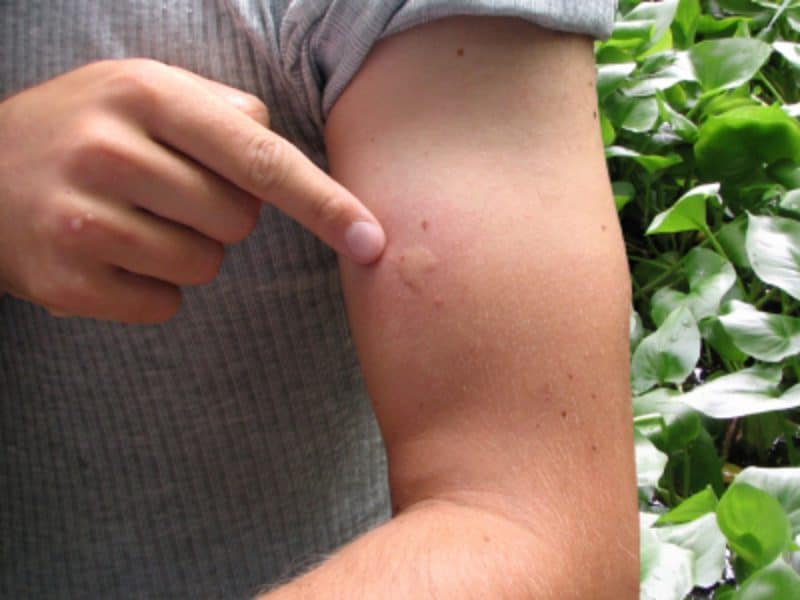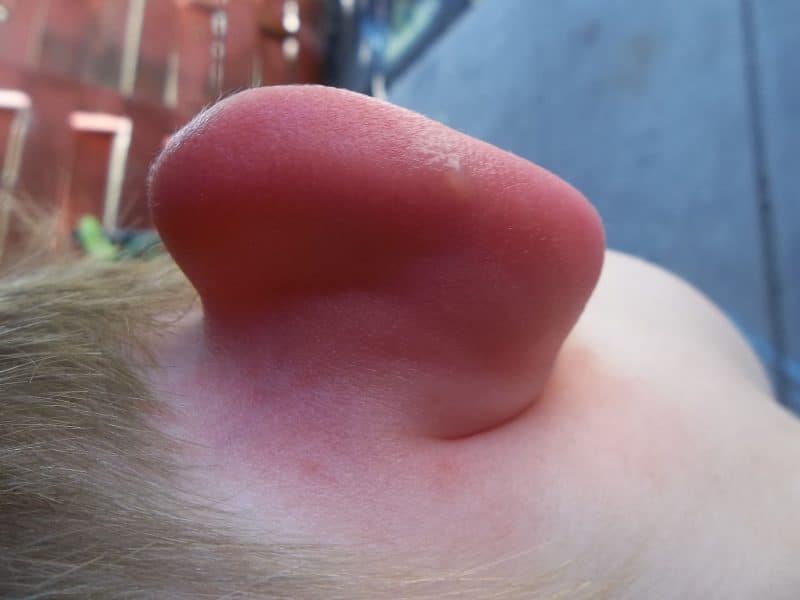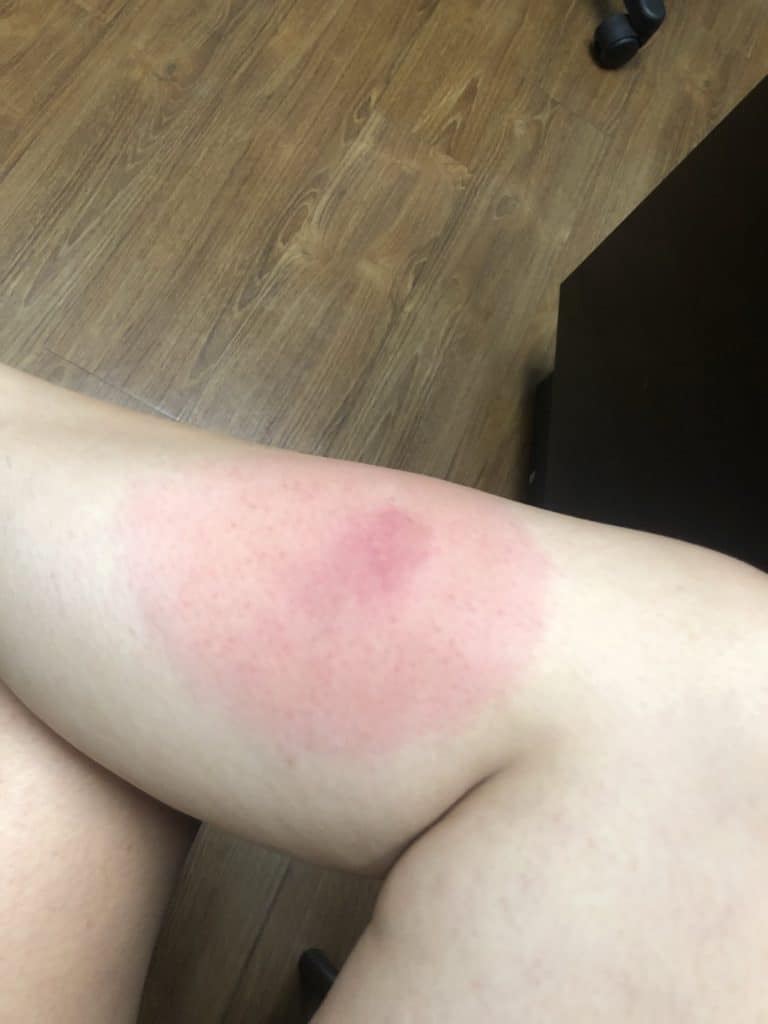Mosquito bite allergy is also called a skeeter syndrome. Almost everyone has a reaction to mosquito bites. For people with severe allergic reactions, the symptoms of a simple bite can become serious health issues. Female mosquitoes are common culprits for this syndrome since the male mosquitoes only feed on water and plant nectar. They need blood to nourish the eggs inside them.
How a female mosquito feeds

A female mosquito identifies a victim via sweat chemicals, carbon dioxide exhalation, and scent. She will land on any exposed part of the skin and insert her long proboscis to take in the host’s blood. The proboscis is sharp enough to pierce the human skin. The bite would often be red, itchy, and bumpy. This is not from the piercing. It is from the reaction of your immune system to the saliva that came out from the mosquito’s bite. The reaction in some people is not that simple.
Risk factors for skeeter syndrome
Female mosquitoes like certain hosts better than others. They are the following:
- People who drank beer
- Men
- People with higher levels of ammonia, uric acid, and lactic acid
- Pregnant women
- Obese or overweight
- People who just worked out
- Those with type O blood

A mosquito is often attracted to heat and dark colors. Light-colored clothes reflect heat. Dark-colored clothes absorb heat. That is why these insects are attracted to people wearing them. Those living in swamplands or humid areas also have a greater risk for mosquito bites.
Younger children have a higher risk of having skeeter syndrome. Adults diagnosed with allergies to specific mosquito saliva components can also suffer from this syndrome.
Complications of mosquito bites
Untreated mosquito bites develop the following complications:
- Welts
- Blisters
- Swelling
- Sepsis
- Impetigo
- Lymphangitis
- Cellulitis
- Low-grade fever
Seeking emergency help
If you notice any of these symptoms after your mosquito bite, you should see the doctor right away. These may occur in people with weak immunity:
- Difficulty of breathing due to anaphylaxis
- At least 38.3 degrees Centigrade or 101 degrees Fahrenheit
- Persistent headache
- Rashes
- Exhaustion
- Painful joints and muscles
Diseases from a mosquito bite
Contracting a disease from a mosquito bite is the most life-threatening complication of a mosquito bite. A mosquito can transmit any of the following diseases:

- Zika. This is a mild condition that causes rashes, fever, and joint pain. These symptoms often disappear after a week. This disease can lead to congenital deformities in unborn children if the mother is bitten by an infected mosquito.
- Malaria. This is also a life-threatening illness that destroys red blood cells. Early diagnosis can treat and control the disease.
- Yellow fever. This can cause inflammation of the brain and the spinal cord. It can also include sore throat and fever.
- West Nile Virus. It is common for people to show symptoms at all. Some may develop flu-like symptoms. A few may develop serious nervous system illnesses.
- Chikungunya. Symptoms of this condition are fever, rashes, joint pain, and headaches. Severe cases involve shock, severe bleeding, and then death. Increased fluids and bed rest can help the patient recover.
- Dengue fever. The symptoms of this disease are joint pain, high fever, rashes, and muscle soreness. This is common in subtropical and tropical regions.
- Meningitis. This is the inflammation of the spinal cord and brain.
- Encephalitis. This is a type of brain infection.
Outlook for the skeeter syndrome
It is rare for a mosquito bite to cause a skeeter syndrome. But a person’s allergic reaction may need medical attention right away. An allergy specialist can provide the right treatment for the reactions you have. The specialist can provide a skin prick test. This will determine which component of the mosquito saliva triggered the reaction. Desensitization is key to a person’s full recovery from skeeter syndrome. This will allow you to have immunity against reactions to mosquito bites.